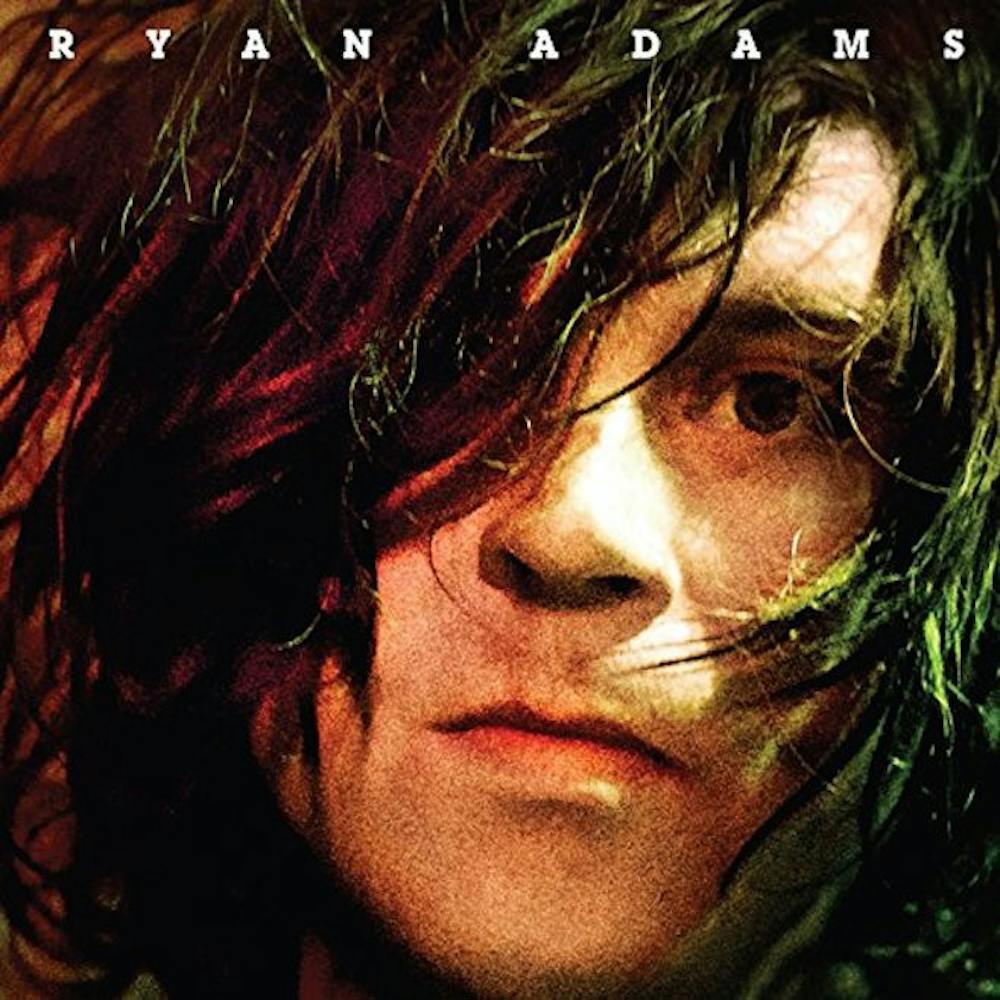Released: 9/9/2014
5/7 stars
Any discussion of Ryan Adams’ fourteenth (official) studio album, tentatively entitled Ryan Adams, will inevitably end up a discussion of the circumstances under which it was made, as well as a referendum on the artist’s past. Indeed, nearly every review since the album’s release has focused on the same things: the scrapped album made with producer Glyn Johns; Adams’s notorious prolificacy (14 albums in 14 years, plus several fully-formed unreleased works); his enfant terrible shtick with the press; his battle with Meniere’s disease (an inner-ear disorder); even his recent marriage to actress and singer Mandy Moore.
While there are certainly a lot of great talking points to be found in there, what everyone seems to be glancing over is the album itself. Ryan Adams is different from just about any Ryan Adams album. I don’t mean that it’s a total stylistic change, although the ‘80s pop/rock/punk influences definitely stand out when juxtaposed with his more Americana-ish work. I don’t mean that it gets too far away from or any closer to what Ryan Adams is really “about” (whatever that may mean). And I don’t mean that this is far and away the best album he’s ever put out.
What I mean is that, for seemingly the first time in a career that doesn’t span near as long as you think it would, Ryan Adams sounds like he really took his time here. This album sounds measured, and not to a fault. But when compared with albums like Rock N’ Roll (his 2003 middle finger to his record label), 29 (the final installment of his 2005 trio – yes, TRIO – of albums), or certainly 2003’s Demolition (a collection of songs from three albums – yes, THREE albums that his label refused to release), Ryan Adams feels like the work of an artist putting time into his craft. Where before it might sound like a song was written in the studio as the tapes were rolling, it now sounds like songs were put together with care and thoughtfulness.
And certainly, this album mines new sonic territory for an artist so closely associated with a particular sound and style. When Ryan Adams released his debut solo album, Heartbreaker, in 2000 following the dissolution of his critically acclaimed group Whiskeytown, he had inarguably created a modern-day classic. Critics, always quick to create hype and assign labels (see: the Strokes, Interpol, etc.), hailed Adams as the new Dylan. And why not? The songs were beautiful, full of pain and sadness and harmonica lines that make you want to weep. In a way, Adams emerged almost as fully formed as a group like the Strokes; he was so himself that it didn’t seem like there was anywhere else to go.
So when subsequent Ryan Adams albums didn’t sound like Heartbreaker, both the press and the public began to clamor for Heartbreaker: The Sequel. And even when he delivered something in a similar vein (2007’s Easy Tiger, 2011’s Ashes & Fire), it still didn’t measure up in people’s eyes. So whether or not that had any effect on his eponymous album is up for debate, but you can’t fault him for branching out from his “signature” sound.
Ryan Adams is chock full of electric guitar goodness. Reverb abounds, organ fills climb the labyrinthine walls of the arrangements (courtesy of Tom Petty keyboardist Benmont Tench), and Adams’s lyrics create an air of desperation and longing. Opener “Gimme Something Good” sums up the album’s intentions right off the bat: a choppy guitar riff, soaring organ fills, and a chorus that sounds like something off Tom Petty’s 1979 classic Damn The Torpedoes. “Kim” (which features a guitars solo from Johnny Depp) and “Trouble” continue that trend, while the plaintiff “My Wrecking Ball,” written for his recently deceased grandmother, is arguably the most Ryan Adams-y track on the record. “I wish I could call you, I wish you were still around,” he sings over a gently strummed acoustic guitar. It’s as overtly intimate as the album gets, and is truly a high point.
Elsewhere, songs like “Am I Safe” and “Stay With Me” perpetuate an air of uncertainty that permeates the album. “Shadows” simmers for five and a half minutes, threatening to boil over before Adams pulls it back. “I Just Might” really does sound like a Springsteen song that was left off of The River. “Tired of Giving Up” and “Let Go” close the album on a bittersweet note, as Adams is wont to do. They’re beautiful songs that sum up what so many of us feel; we all know something is wrong, but we never know what it is or how to fix it. Those are the kinds of themes that Adams has excelled in his whole career, and the two songs provide a tremendous end to the album.
Ryan Adams isn’t even 40 yet. He’s already released more music than many artists release in a lifetime (not including his unreleased work). Give him a pen, paper, and a guitar and he will have you weeping within five minutes. He’s certainly the most prolific singer-songwriter of the last 20 years. He’s arguably the most talented, and the one most easily consumed by his own zeitgeist. But on Ryan Adams, he sounds – dare I say – mature. Less frantic. More at ease. Whatever it is, it makes his fourteenth album his most measured and well-crafted yet.





